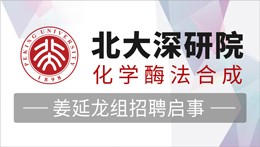Journal of Research in Music Education ( IF 1.2 ) Pub Date : 2022-04-23 , DOI: 10.1177/00224294221090432
Mark Montemayor 1 , Jessica Nápoles 1 , Brian A. Silvey 2 , Lia Wiese 1
The purpose of this study was to examine the effects of score study and conducting gesture on collegiate musicians’ ability to detect errors in a choral score. Is there a combined effect of gesture and score study that impacts undergraduate conductors’ identification of errors in a score? Participants (N = 53) viewed a sequence of four choral score excerpts presented via Zoom video conferencing. We asked participants to identify errors under one of four conditions: score study with a correct model recording, conducting with a simple timekeeping pattern while listening, both score study and conducting, or neither. After listening to each excerpt, participants notified the researcher about the exact location, voice part, and error type of any error that they heard. There were significant differences among conditions, with post hoc tests indicating superior error detection scores for the score study conditions. Conducting during the error detection task resulted in lower error detection scores, especially when not preceded by score study with a correct aural model.
中文翻译:

乐谱学习和指挥手势对大学音乐家合唱乐谱错误检测能力的影响
本研究的目的是检验乐谱学习和指挥手势对大学音乐家检测合唱乐谱错误能力的影响。手势和乐谱学习的综合效果是否会影响本科指挥对乐谱中错误的识别?参与者(N= 53) 观看了通过 Zoom 视频会议呈现的一系列四个合唱乐谱摘录。我们要求参与者在以下四种情况之一中识别错误:使用正确的模型记录进行评分研究,在聆听时使用简单的计时模式进行,既进行评分研究又进行进行,或者两者都不做。在听完每个片段后,参与者会通知研究人员他们听到的任何错误的确切位置、语音部分和错误类型。条件之间存在显着差异,事后测试表明得分研究条件的错误检测得分更高。在错误检测任务期间进行会导致错误检测分数较低,尤其是在没有使用正确的听觉模型进行分数研究之前。

































 京公网安备 11010802027423号
京公网安备 11010802027423号